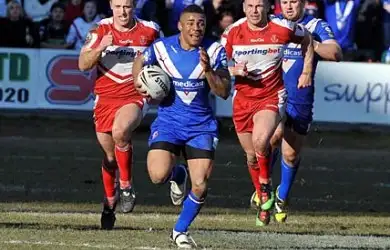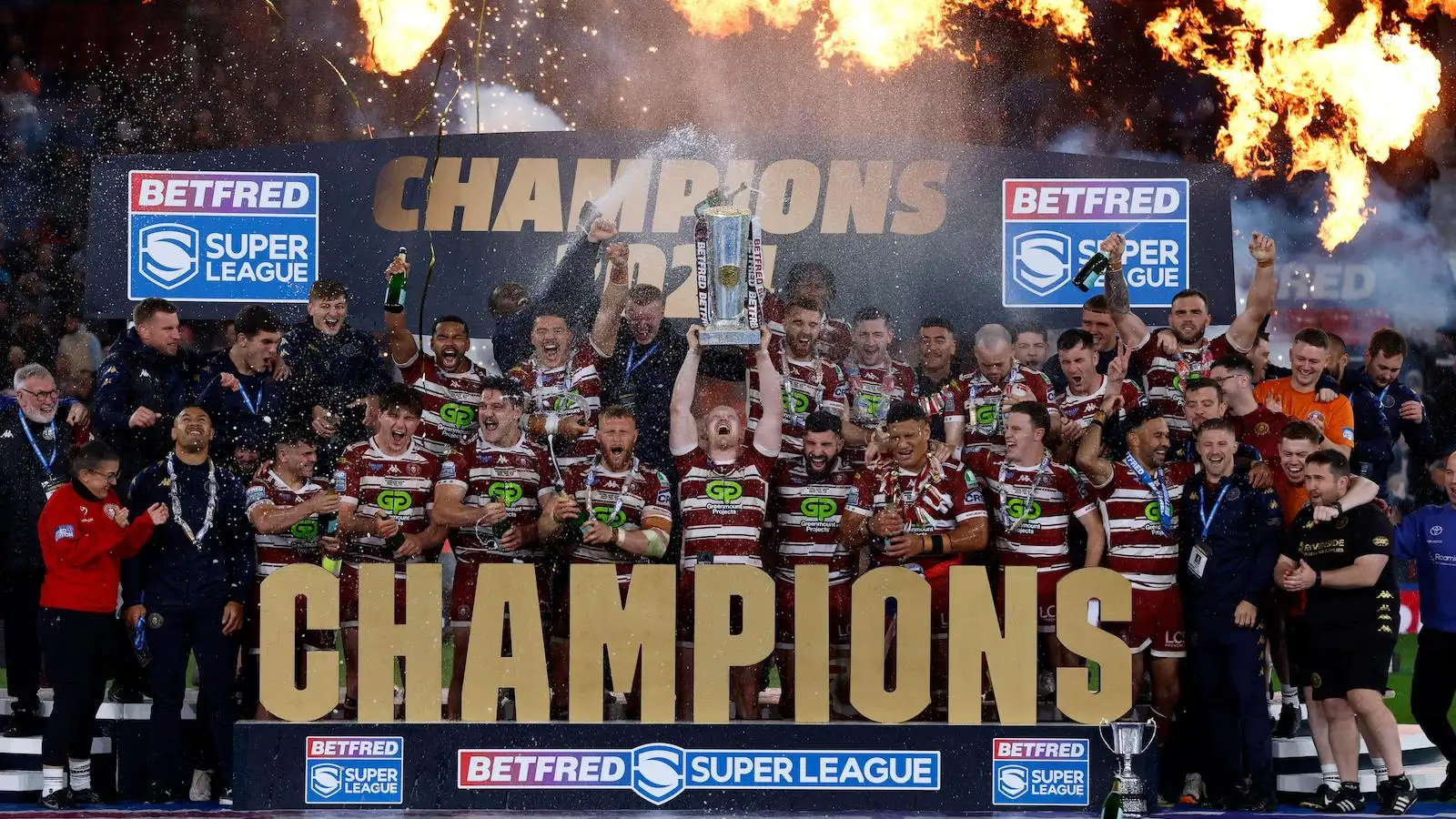Rugby’s Great Split: Why so bitter?

The last couple of weeks have seen the question of code jumping come to the fore again. James Lowes has returned to the fold from Leeds Carnegie RU club, while Joel Tomkins is back at Wigan after a spell with Saracens.
Code jumping often brings to the fore feelings and emotions from rugby league people which often spill into bitterness. Many might wonder why, especially those who are ignorant of the reasons for the anger and outright hostility many dyed-in-the-wool league fans feel towards union.
The bitterness of the feeling on the rugby league side of the equation often particularly surprises people who have grown up in a union background. They are usually too young to remember the kind of discrimination that rugby league players, or union players who tried league, once faced.
Indeed, many younger league fans will have very little direct idea of why the split was so bitter for so long. A century of outright hostility has only begun to calm in the last 20 years or so.
The split came about because northern working-class players wanted ‘broken time’ payments for losing their Saturday morning shifts to playing rugby. This angered the game’s authorites, who wanted to preserve an ‘amateur’ ideal. This was a bit of a smokescreen, however, as Tony Collins details in his excellent book ‘Rugby’s Great Split’.
In the years leading up to the Split, there was a clear additional division emerging. In the North of England, the game was dominated by working-class players and large crowds. This was in direct contrast to the South.
What the southern, privately educated clique who controlled the sport of rugby wanted to preserve was its status as recreation for the more leisured classes. Working men were not welcome, especially when they were better players.
A London journalist wrote in 1892: “The majority of Yorkshire 15s are composed of working men who have only adopted football [rugby] in recent years, and have received no school education in the art. The majority of members of London clubs have played it all their lives, yet when the two meet there is only one in it – the Yorkshireman.”
In the first seven years of rugby’s County Championship, it was won six times by Yorkshire and once by Lancashire.
Some illuminating quotes from the time illustrate the kind of class bigotry which informed much of the RFU’s behaviour. Harry Garnett was prominent at the Bradford club, and he said, at an RFU general meeting in 1886: “If working men desired to play football, they should pay for it themselves.”
A letter to the Salford Reporter at the time declared: “If the working man cannot afford to play, then he must do as other people must do when they want things they cannot afford – do without.”
Frank Mitchell, a Yorkshireman who was a dual international in rugby and cricket, said: “The Rugby game, as its name implies sprang from our public schools…why should we hand it over without a struggle to the hordes of working men players who would quickly engulf all others?”
A newspaper correspondent known as ‘Creston’ added: “It was an ill day for the game when the Northern labourer diverted his attention from quoits and rabbit coursing and pigeon flying and turned it to [rugby] football.”
There was also resentment from the southern, upper class RFU authorities about the amount of northern working men who were playing rugby.
The hypocrsisy of their position can be demonstrated by the fact that when the split came, they deliberately turned a blind eye to ‘shamateurism’ at powerful club Leicester, and in Wales, in order to keep the club and the Principality on their side. The so-called ‘Arthur Gould affair’ of 1896 is worth looking up, in relation to Wales.
Had Leicester and Wales joined the nascent Northern Union, which became the Rugby Football League, then it is worth pondering which game would be more popular now.
Only in 1987 were amateur league players permitted to play rugby union. Anyone who had played professionally, of course, remained banned.
The bans from union clubs and the social stigma may not have meant much to the middle-class players in union. But for working class players who had joined league from places such as South Wales and the Scottish Borders, where rugby union was a working class game, the consequences could be devastating.
Ostracised at home and banned from entering the clubs where they had played junior rugby, Welsh and Scottish greats like Billy Boston and David Valentine were wilfully ignored in their own countries.
The sheer pettiness of the way that union behaved before, during and after the split is one the main reasons for that lingering bitterness. People born after 1980 largely missed out on this, as rugby union going professional utterly changed the dynamic between the codes.
People should remember the bans which were dished out by union to players who were known to have had a trial with league clubs. The same bans were never handed out to players who played professional soccer or cricket. Former Scotland RU internationalist David Johnston, for instance, played football for Heart of Midlothian, and later played for Scotland at union. He was never banned or censured in any way.
In France, too, the history of league made for a bitter split. Here, rugby union decided to throw in its lot with the Nazi-backed Vichy regime. This meant that rugby league was banned, and its equipment and stadiums confiscated and handed to rugby union, to the value of around 2million francs at 1940 value. French rugby league has never been compensated for this.
The Vichy government, in partnership with their Nazi overlords, saw league as a ‘corrupter of French youth’, and associated it with the Socialist pre-war French government, as well as with the UK.
It is also worth remembering that union’s notions of amateurism were shady, to say the least. I personally know former rugby union ‘amateurs’ who freely admit to receiving ‘boot money’ in brown envelopes after games. Yet, if they had played one game of league for money, they would have been banned by the RU authorities, probably for life.
That is the hypocrisy which still sticks in the craw of older league followers.
Those who talk nowadays of ‘inverted snobbery’ amongst league types would do well to remember this actual snobbery towards us, based on class and regional prejuduce, with a good dash of added hypocrisy.
Rugby league should be proud of its past as a game of revolt and revolution. In terms of what the game faced in the past from those who controlled the 15-man code, it is perhaps best to turn to a quote from the great Sir Vivian Richards.
Viv knew all about taking on the Establishment, and had the kind of attitude in his cricket which indicates he might have fitted in quite well with rugby league. He said: “You can forgive. But you never forget.”


